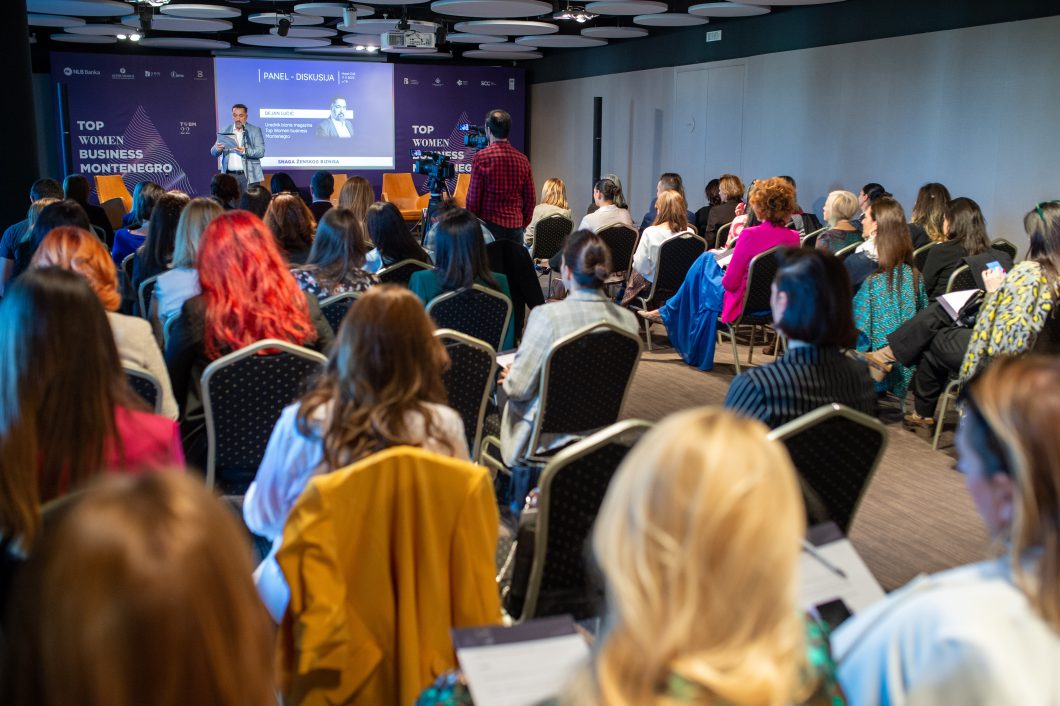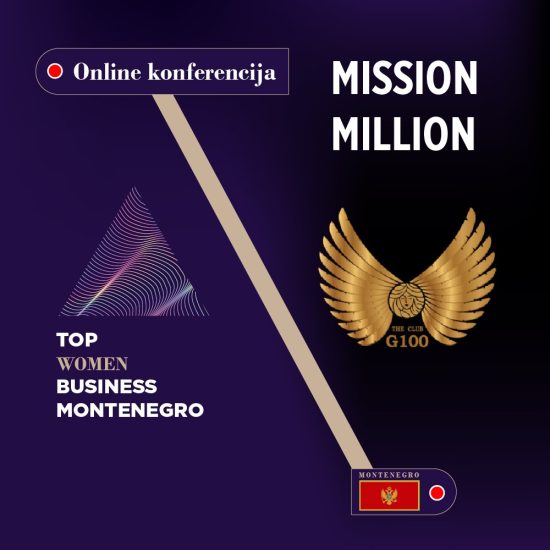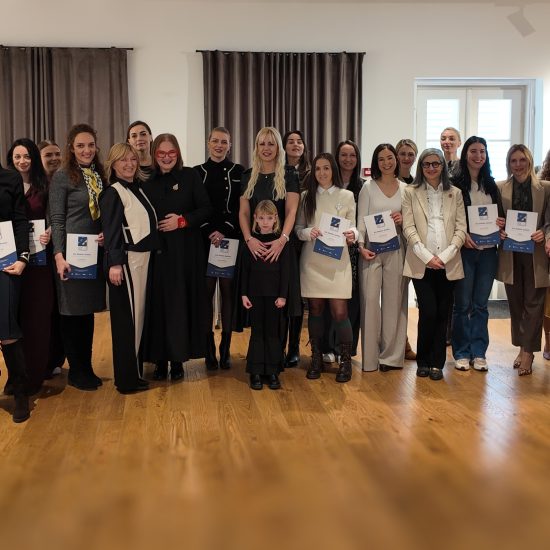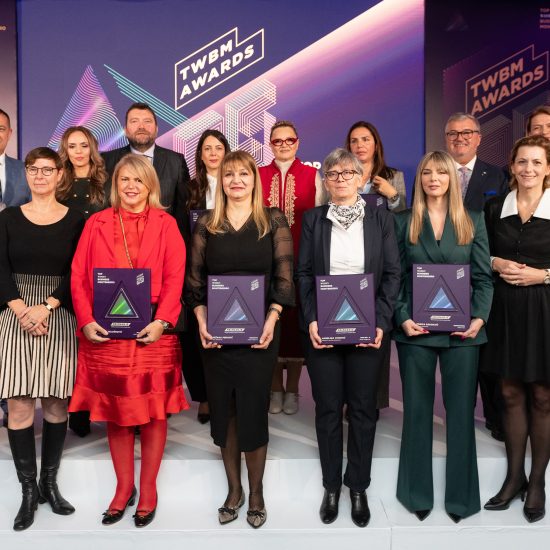Inadequate institutional support and limited access to finance are key problems for women to start a business. This is the message sent from the panel “Top Women Business Montenegro” (TWBM) – a project implemented by “BI Communication”.
Statistical data show that less than a quarter of micro, small and medium-sized enterprises in Montenegro are majority owned by women, and it is estimated that there are only 32% of women entrepreneurs.
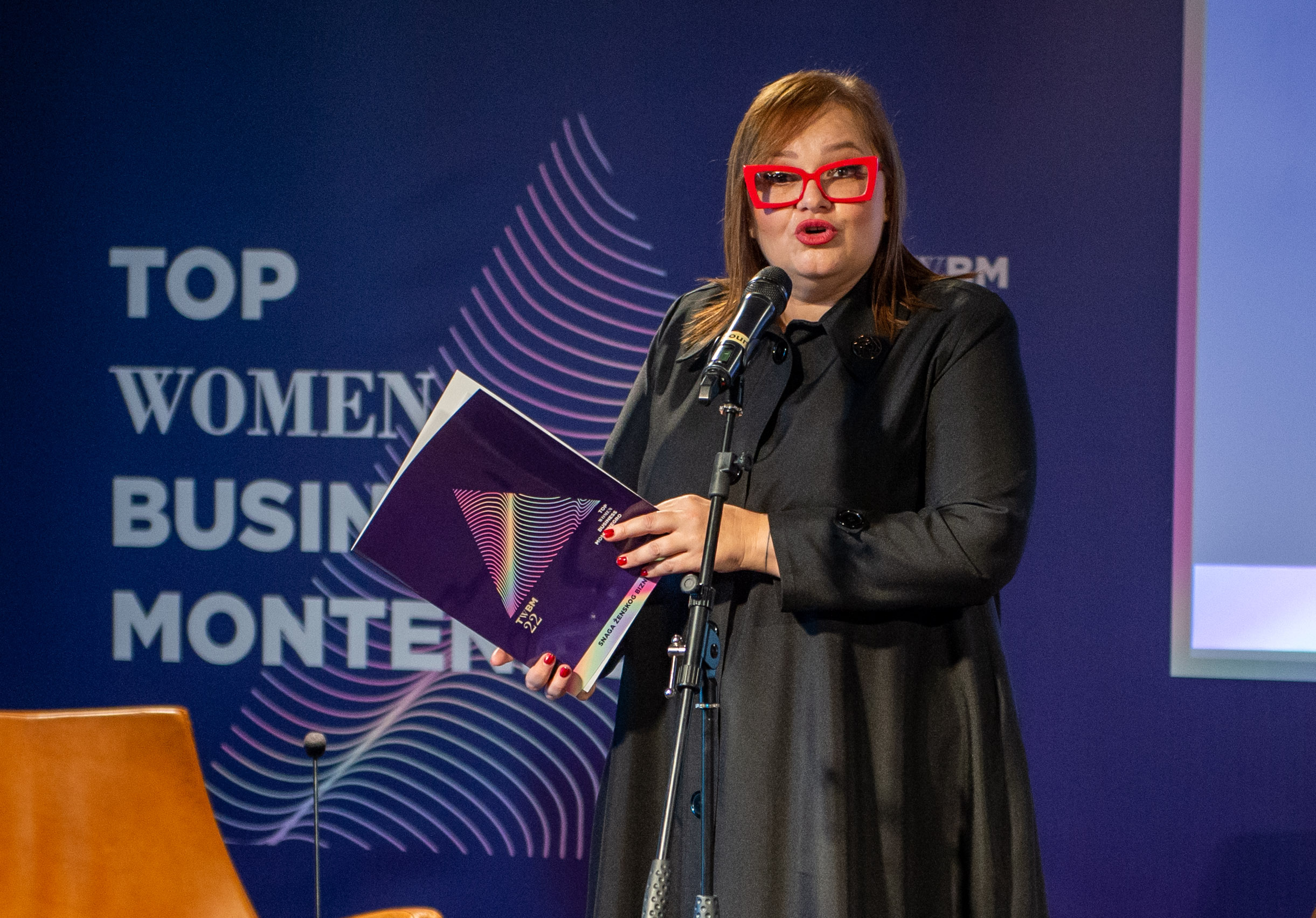 Mrs Ljiljana Burzan Nikolić, the TWBM initiator, has said that the event aims to strengthen the women’s business community.
“The publication of the business magazine TWBM will also follow, as well as presentation of awards to micro, small, medium and large enterprises owned by women or to those managed by women. Our plan is that every Montenegrin autumn becomes a period of the year when we summarise and publicise, as well as enrich, the results of women’s enterprises,” Mrs Burzan Nikoli’ has said.
Mrs Ljiljana Burzan Nikolić, the TWBM initiator, has said that the event aims to strengthen the women’s business community.
“The publication of the business magazine TWBM will also follow, as well as presentation of awards to micro, small, medium and large enterprises owned by women or to those managed by women. Our plan is that every Montenegrin autumn becomes a period of the year when we summarise and publicise, as well as enrich, the results of women’s enterprises,” Mrs Burzan Nikoli’ has said.
Women own 3,914 enterprises in Montenegro, while they manage 2,152 of them. Mr Dejan Lučić, editor of TWBM Business Magazine, has said that the analysis of the women’s activity in the Montenegrin business community, made by Bi Consulting for the TWBM initiative, showed that there are 6,066 women’s enterprises in Montenegro in total, which is 21.35 percent of all enterprises in Montenegro.
“Total operating revenues of these enterprises amount to more than EUR 1.23 billion, which is 13.19 percent of total operating revenues in the Montenegrin economy in 2021. These enterprises generated the profit of EUR 47.8 million, which is 81.74 percent of the profit generated by the entire economy in 2021,” Mr Lučić has said.
He has added that the trend as regards the share in this profit significantly changed during the 2020 crisis and in 2021 after the crisis, in the way that the share of these enterprises in the net loss during the crisis in 2020 was only 2.8% gand as much as 81.74% in the net profit in 2021 which may indicate greater resilience of these companies in times of crisis. Also, the analysis showed that enterprises owned and managed by women have better financial parameters than the average Montenegrin enterprise.
Mr Dejan Lučić, editor of TWBM Business Magazine, has said that the analysis of the women’s activity in the Montenegrin business community, made by Bi Consulting for the TWBM initiative, showed that there are 6,066 women’s enterprises in Montenegro in total, which is 21.35 percent of all enterprises in Montenegro.
“Total operating revenues of these enterprises amount to more than EUR 1.23 billion, which is 13.19 percent of total operating revenues in the Montenegrin economy in 2021. These enterprises generated the profit of EUR 47.8 million, which is 81.74 percent of the profit generated by the entire economy in 2021,” Mr Lučić has said.
He has added that the trend as regards the share in this profit significantly changed during the 2020 crisis and in 2021 after the crisis, in the way that the share of these enterprises in the net loss during the crisis in 2020 was only 2.8% gand as much as 81.74% in the net profit in 2021 which may indicate greater resilience of these companies in times of crisis. Also, the analysis showed that enterprises owned and managed by women have better financial parameters than the average Montenegrin enterprise.
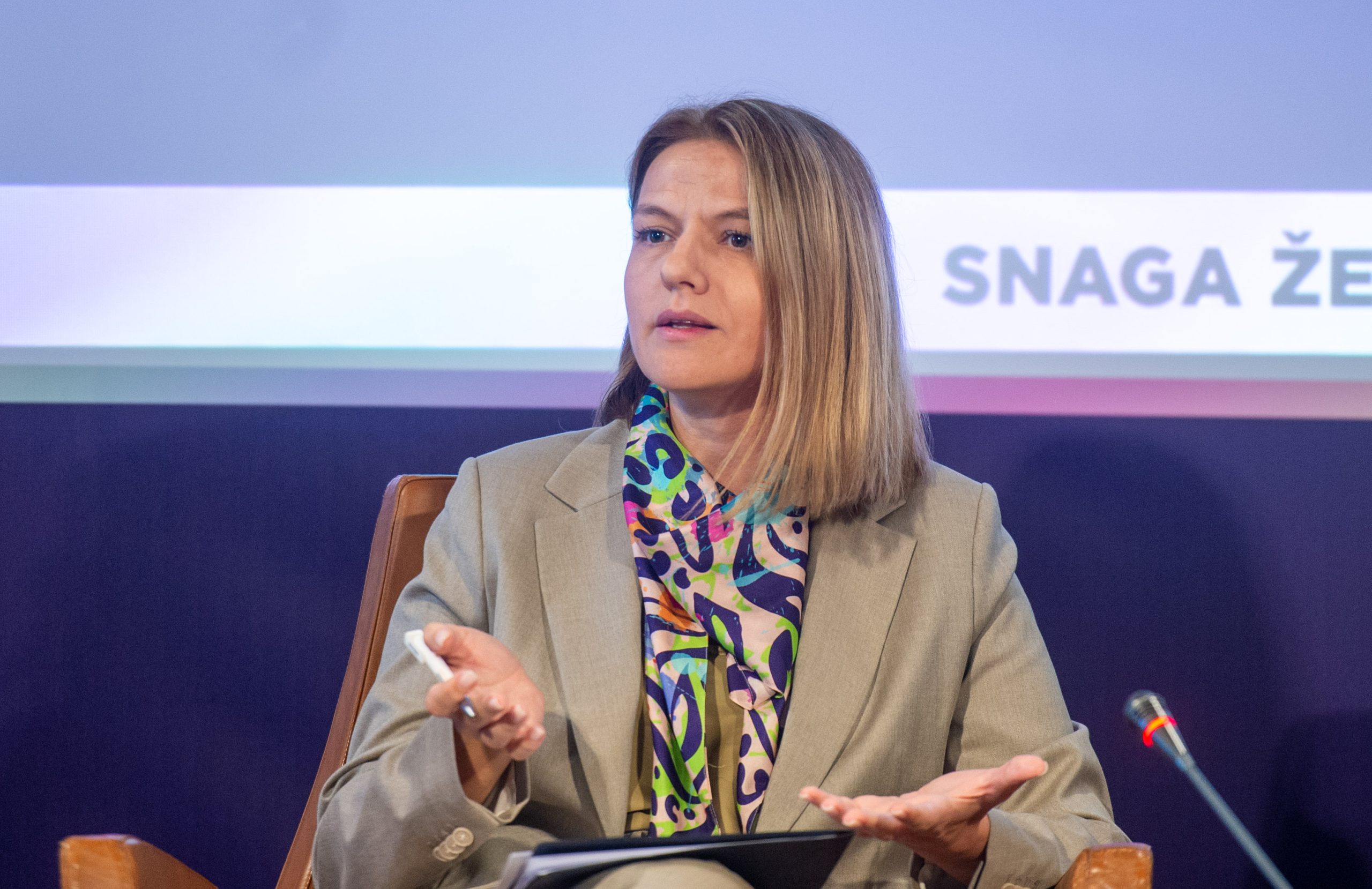 “The patriarchal attitudes regarding women’s status in our society are a problem. Those traditional views represent sometimes more of a barrier than support for women to start a business. Lack of access to financial resources is also another key problem for women to start a business,” Mrs Nina Drakić, the president of the Chamber of Economy of Montenegro, has said.
“The patriarchal attitudes regarding women’s status in our society are a problem. Those traditional views represent sometimes more of a barrier than support for women to start a business. Lack of access to financial resources is also another key problem for women to start a business,” Mrs Nina Drakić, the president of the Chamber of Economy of Montenegro, has said.
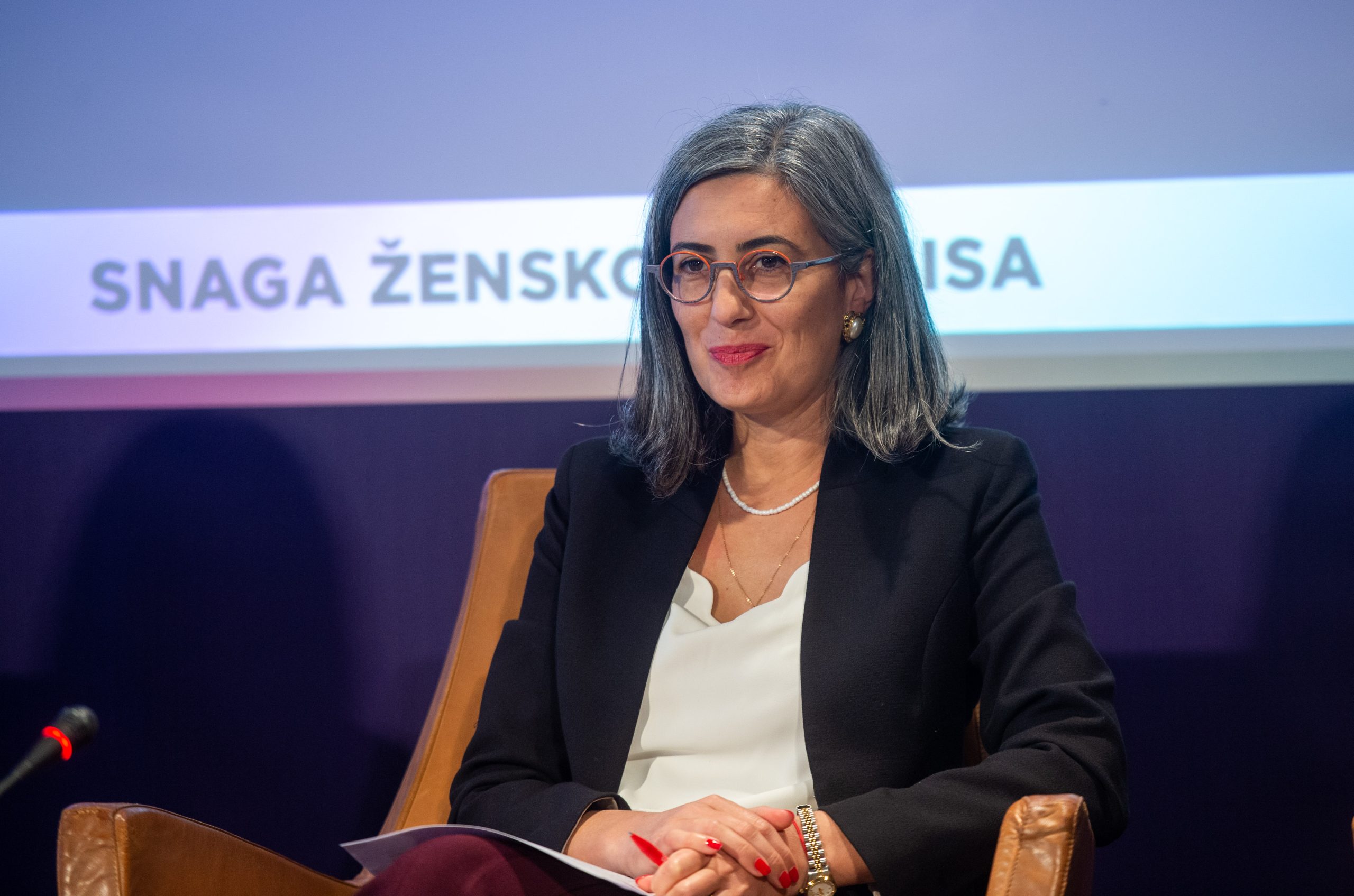 Representatives of the Council for Competitiveness have appealed for the elimination of business barriers,
and added that gender equality is an unquestionable obligation of society.
“Women who run businesses face a number of issues. . Difficult access to markets, access to equipment and technologies, as well as complicated bureaucratic procedures are key issues,”
Ms Marija Šuković, head of the secretariat of the Council for Competitiveness, has said.
Representatives of the Council for Competitiveness have appealed for the elimination of business barriers,
and added that gender equality is an unquestionable obligation of society.
“Women who run businesses face a number of issues. . Difficult access to markets, access to equipment and technologies, as well as complicated bureaucratic procedures are key issues,”
Ms Marija Šuković, head of the secretariat of the Council for Competitiveness, has said.
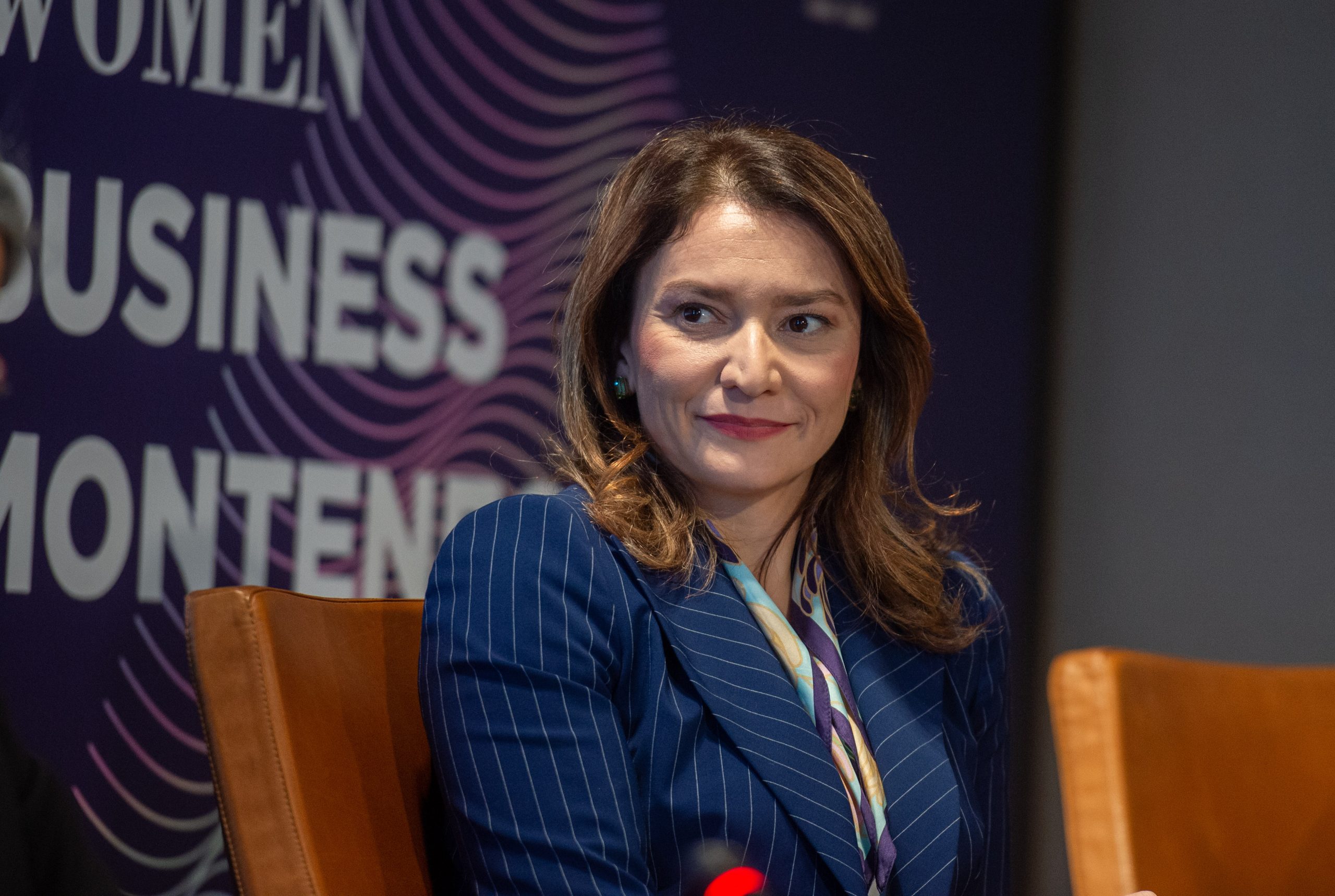 Mrs Jelena Jovetić, director general of the Directorate for Public Procurement Policy of the Ministry of Finance, has said that as a society we need to promote work, and noted that budget spending should be gender-sensitive.
“In addition to the novelties related to the programme-based budgeting, the Ministry of Finance has also introduced gender-based budgeting. This means that, within public policy making process, financial resources are channelled to those segments that make our budget spending gender-sensitive,” she has added.
Mrs Jelena Jovetić, director general of the Directorate for Public Procurement Policy of the Ministry of Finance, has said that as a society we need to promote work, and noted that budget spending should be gender-sensitive.
“In addition to the novelties related to the programme-based budgeting, the Ministry of Finance has also introduced gender-based budgeting. This means that, within public policy making process, financial resources are channelled to those segments that make our budget spending gender-sensitive,” she has added.
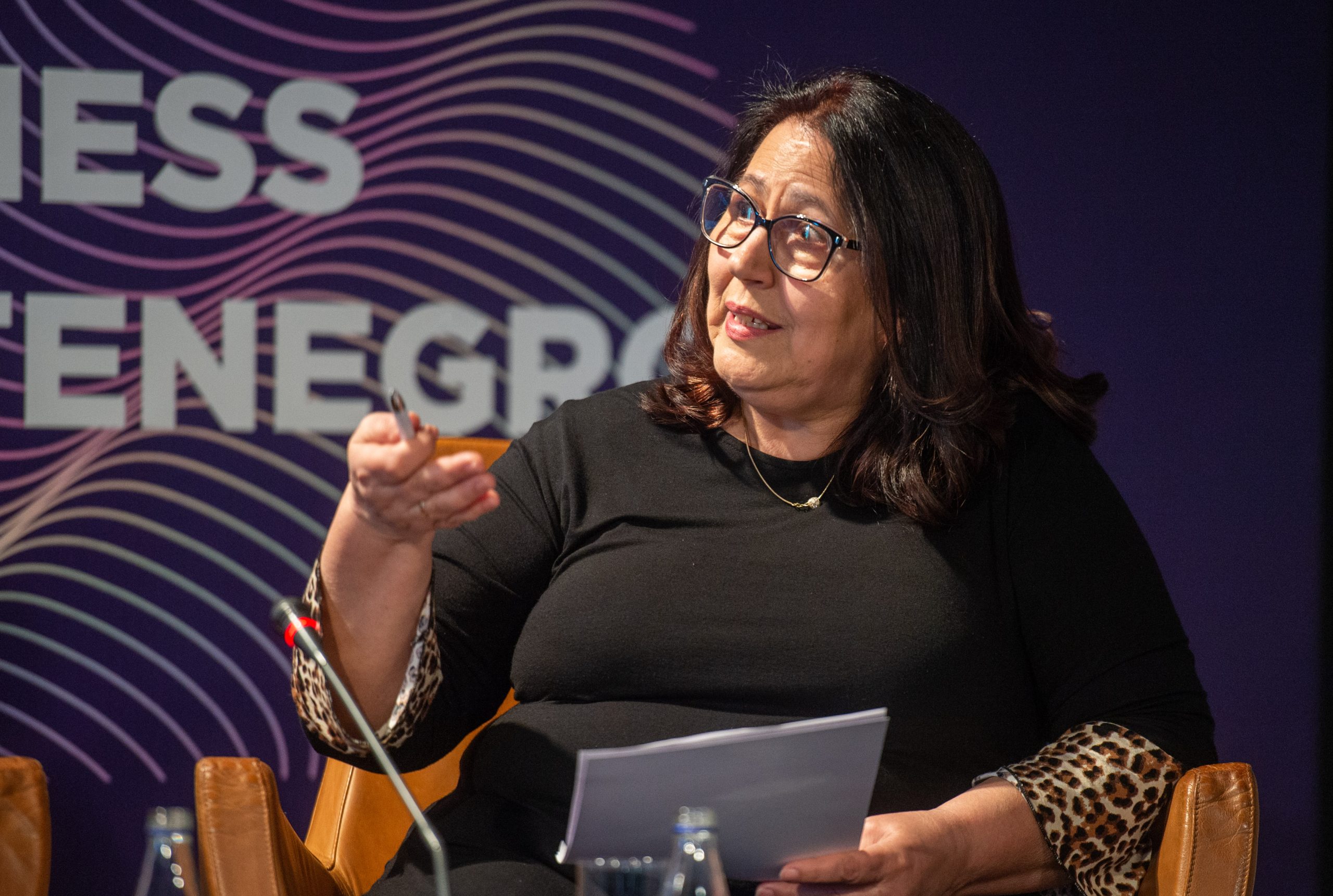 Representatives of the Association of Business Women believe that Montenegro’s business environment has been improving from year to year.
“Our association brings together more than 150 members, but it is evident that, unlike men, women are more hesitant when it comes to starting their own business. Women need trainings to get better acquainted with digital transformation,” Ms Mirjana Paunović, president of the Assembly of the Association of Business Women.
One of the main difficulties that women’s businesses face is the availability of financial resources. Women most often seek financial support from the Investment and Development Fund, in the form of long-term loans with a fixed interest rate and a grace period, to start their own business.
Representatives of the Association of Business Women believe that Montenegro’s business environment has been improving from year to year.
“Our association brings together more than 150 members, but it is evident that, unlike men, women are more hesitant when it comes to starting their own business. Women need trainings to get better acquainted with digital transformation,” Ms Mirjana Paunović, president of the Assembly of the Association of Business Women.
One of the main difficulties that women’s businesses face is the availability of financial resources. Women most often seek financial support from the Investment and Development Fund, in the form of long-term loans with a fixed interest rate and a grace period, to start their own business.
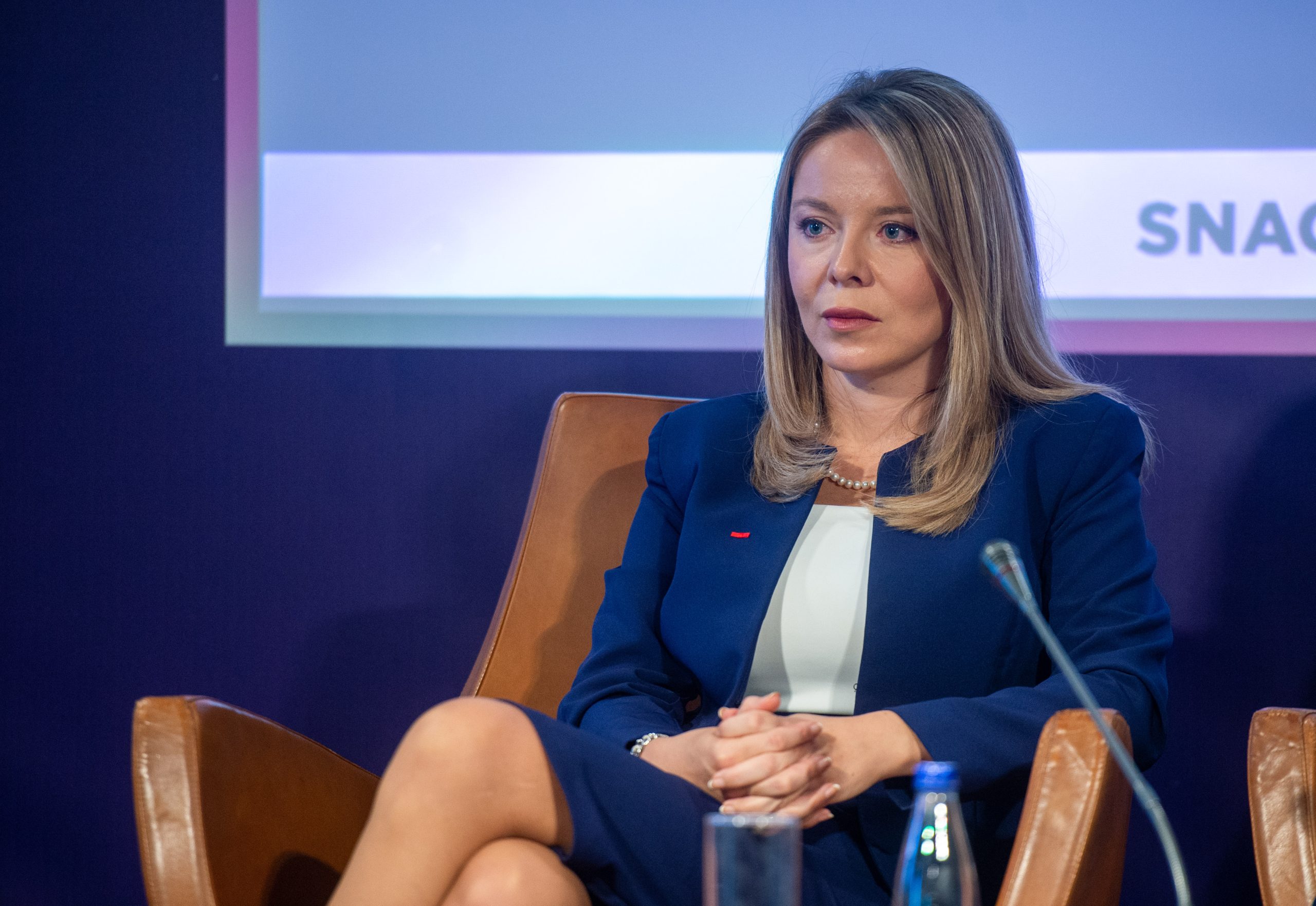 Ms Irena Radović, IDF executive director, has said that they approved EUR 4 million in loans for women in 2021.
“The procedure for getting a loan from IDF is more complex, but interest rates are many times lower than in other banks. That’s why IDF is the leader when it comes to the financial inclusion of women. For years, we had credit lines for women that no one used. Now, we have additionally reduced interest rates for women’s businesses and they are significantly lower compared to other credit lines,” Ms Radović has said.
Ms Irena Radović, IDF executive director, has said that they approved EUR 4 million in loans for women in 2021.
“The procedure for getting a loan from IDF is more complex, but interest rates are many times lower than in other banks. That’s why IDF is the leader when it comes to the financial inclusion of women. For years, we had credit lines for women that no one used. Now, we have additionally reduced interest rates for women’s businesses and they are significantly lower compared to other credit lines,” Ms Radović has said.
NLB Bank has a special credit line for women. It is a project that has been implemented in cooperation with the European Bank for Reconstruction and Development for two years now.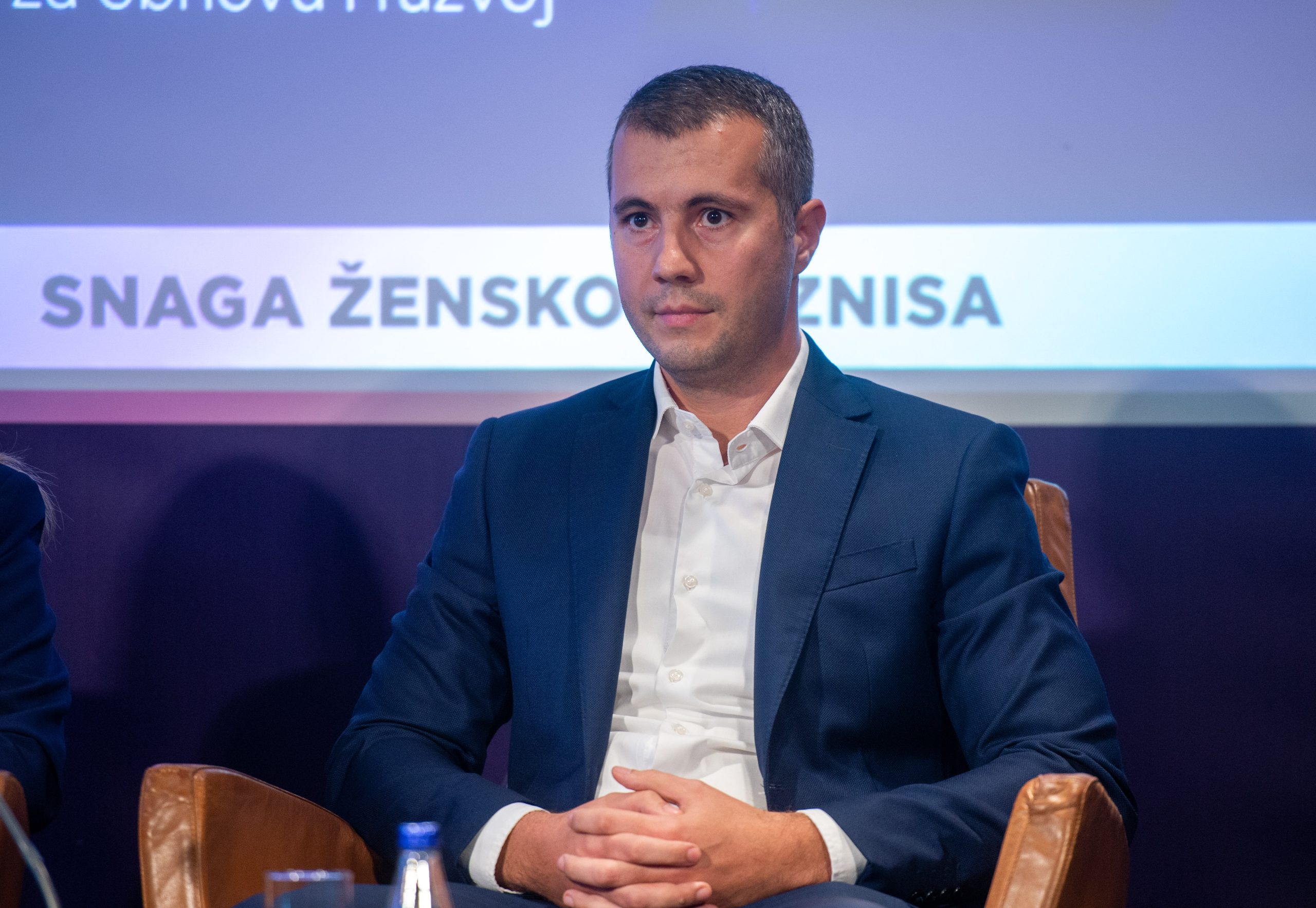 “The analysis has shown that women entrepreneurs are much more regular in repaying loans than men. They are more rational and modest in their requirements. The average amount of loans they apply for is between 15 and 25,000 euros. The analysis has also shown that the fact that women do not own their own property represents a big issue and that it is a big barrier for access to funds,”
Mr Ivan Bauk, head of the SME Sector at NLB Bank, has said.
“The analysis has shown that women entrepreneurs are much more regular in repaying loans than men. They are more rational and modest in their requirements. The average amount of loans they apply for is between 15 and 25,000 euros. The analysis has also shown that the fact that women do not own their own property represents a big issue and that it is a big barrier for access to funds,”
Mr Ivan Bauk, head of the SME Sector at NLB Bank, has said.
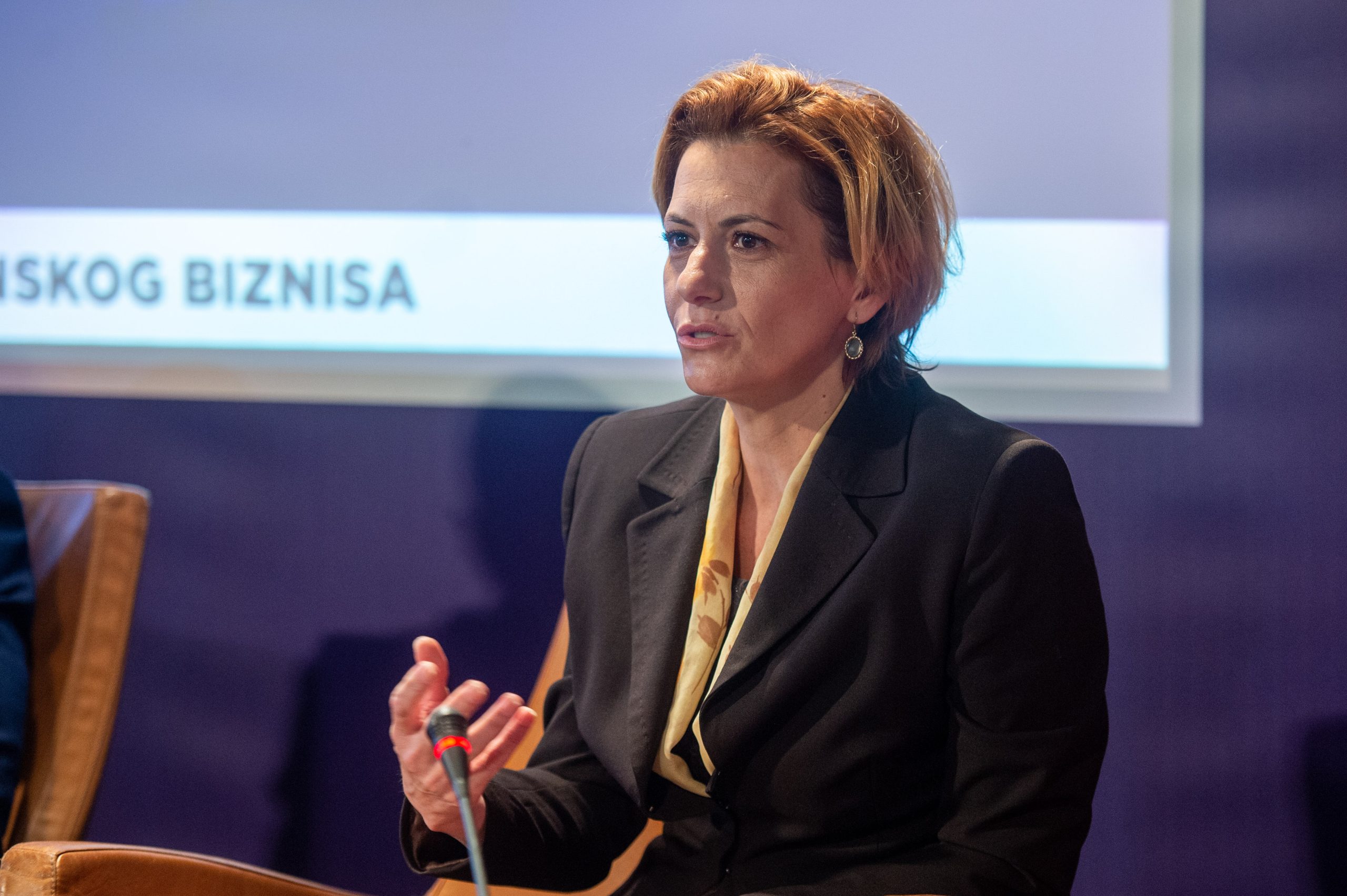 Alter Modus has also been supporting women’s business. Ms Ana Kentera, the company’s CEO, has said that women must be economically empowered and gain financial independence.
“We helped them through our Women in Business program, by exempting them from the obligation to provide a collateral of up to five thousand euros. We could see from an analysis that the collateral was the biggest barrier and we eliminated it. Our idea is to continue implementing this project with our own resources, once the co-operation with the EBRD ends,” Kentera has said.
The Ministry of Economic Development and Tourism recognises the importance of gender equality. They are pleased to know that there are more and more women’s enterprises in Montenegro every year.
Alter Modus has also been supporting women’s business. Ms Ana Kentera, the company’s CEO, has said that women must be economically empowered and gain financial independence.
“We helped them through our Women in Business program, by exempting them from the obligation to provide a collateral of up to five thousand euros. We could see from an analysis that the collateral was the biggest barrier and we eliminated it. Our idea is to continue implementing this project with our own resources, once the co-operation with the EBRD ends,” Kentera has said.
The Ministry of Economic Development and Tourism recognises the importance of gender equality. They are pleased to know that there are more and more women’s enterprises in Montenegro every year.
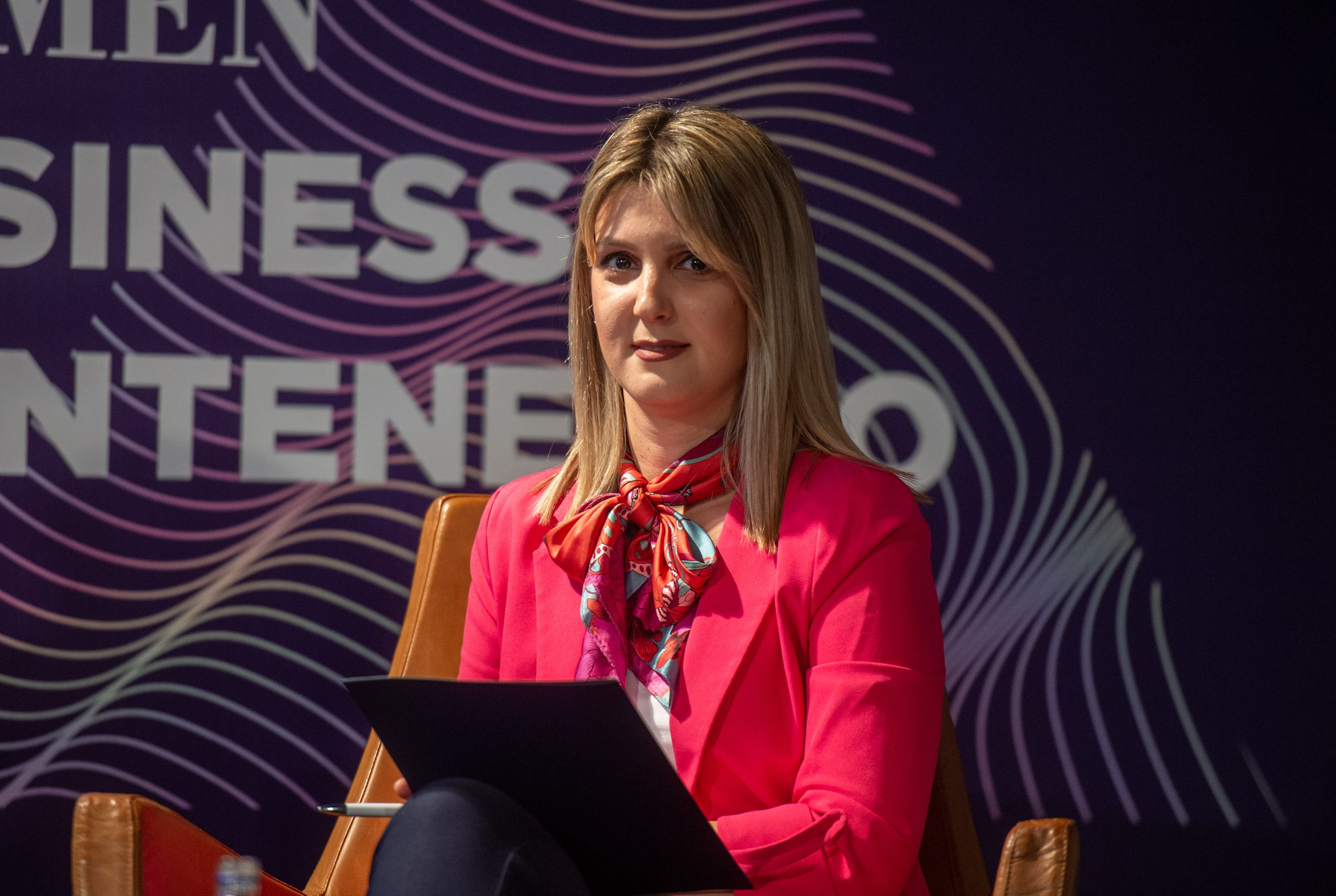 “In 2021, we supported 84 companies owned by women with total amount of about 400 thousand euro, through the program for improving the competitiveness of the economy. This year, we have introduced specific measures through that program to support women’s businesses even more intensively,” Ms Olivera Vukajlović, director general of the Directorate for Improving Competitiveness at the Ministry of Economic Development and Tourism, has said.
“In 2021, we supported 84 companies owned by women with total amount of about 400 thousand euro, through the program for improving the competitiveness of the economy. This year, we have introduced specific measures through that program to support women’s businesses even more intensively,” Ms Olivera Vukajlović, director general of the Directorate for Improving Competitiveness at the Ministry of Economic Development and Tourism, has said.
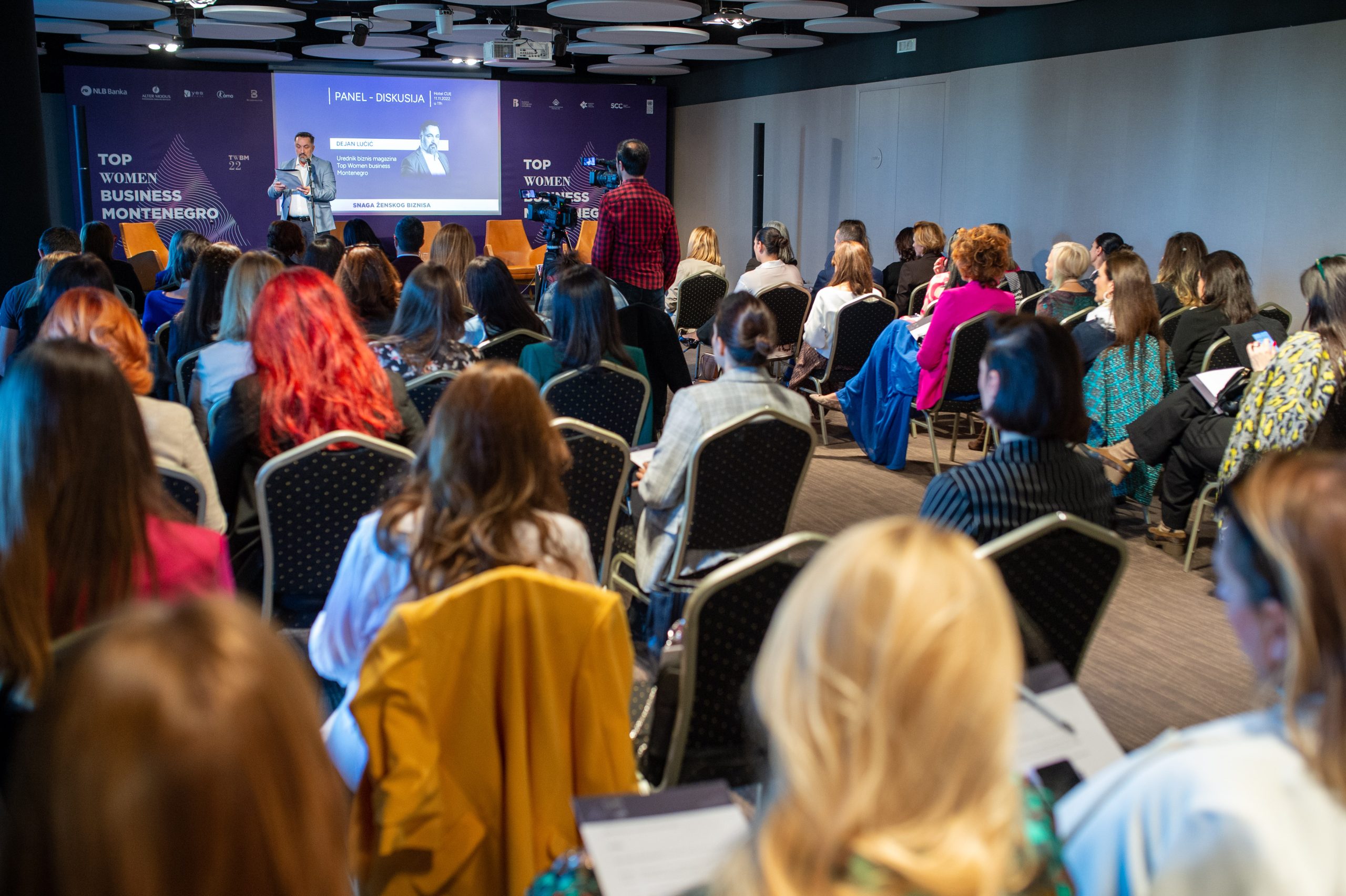 The panel has sent a message that, despite the rise of interest rates at the international level, interest rates for loans intended for women’s business in Montenegro will not rise anytime soon. Statistical data show that women in business are most often involved in trade and service activities. Most of them are from Podgorica, while the fewest number of them are from Gusinje. Most of them are from Podgorica, while the fewest number of them are from Gusinje.
The panel has sent a message that, despite the rise of interest rates at the international level, interest rates for loans intended for women’s business in Montenegro will not rise anytime soon. Statistical data show that women in business are most often involved in trade and service activities. Most of them are from Podgorica, while the fewest number of them are from Gusinje. Most of them are from Podgorica, while the fewest number of them are from Gusinje.
You can watch the video from the panel at the link below.
 Mrs Ljiljana Burzan Nikolić, the TWBM initiator, has said that the event aims to strengthen the women’s business community.
“The publication of the business magazine TWBM will also follow, as well as presentation of awards to micro, small, medium and large enterprises owned by women or to those managed by women. Our plan is that every Montenegrin autumn becomes a period of the year when we summarise and publicise, as well as enrich, the results of women’s enterprises,” Mrs Burzan Nikoli’ has said.
Mrs Ljiljana Burzan Nikolić, the TWBM initiator, has said that the event aims to strengthen the women’s business community.
“The publication of the business magazine TWBM will also follow, as well as presentation of awards to micro, small, medium and large enterprises owned by women or to those managed by women. Our plan is that every Montenegrin autumn becomes a period of the year when we summarise and publicise, as well as enrich, the results of women’s enterprises,” Mrs Burzan Nikoli’ has said.
Women own 3,914 enterprises in Montenegro, while they manage 2,152 of them.
 Mr Dejan Lučić, editor of TWBM Business Magazine, has said that the analysis of the women’s activity in the Montenegrin business community, made by Bi Consulting for the TWBM initiative, showed that there are 6,066 women’s enterprises in Montenegro in total, which is 21.35 percent of all enterprises in Montenegro.
“Total operating revenues of these enterprises amount to more than EUR 1.23 billion, which is 13.19 percent of total operating revenues in the Montenegrin economy in 2021. These enterprises generated the profit of EUR 47.8 million, which is 81.74 percent of the profit generated by the entire economy in 2021,” Mr Lučić has said.
He has added that the trend as regards the share in this profit significantly changed during the 2020 crisis and in 2021 after the crisis, in the way that the share of these enterprises in the net loss during the crisis in 2020 was only 2.8% gand as much as 81.74% in the net profit in 2021 which may indicate greater resilience of these companies in times of crisis. Also, the analysis showed that enterprises owned and managed by women have better financial parameters than the average Montenegrin enterprise.
Mr Dejan Lučić, editor of TWBM Business Magazine, has said that the analysis of the women’s activity in the Montenegrin business community, made by Bi Consulting for the TWBM initiative, showed that there are 6,066 women’s enterprises in Montenegro in total, which is 21.35 percent of all enterprises in Montenegro.
“Total operating revenues of these enterprises amount to more than EUR 1.23 billion, which is 13.19 percent of total operating revenues in the Montenegrin economy in 2021. These enterprises generated the profit of EUR 47.8 million, which is 81.74 percent of the profit generated by the entire economy in 2021,” Mr Lučić has said.
He has added that the trend as regards the share in this profit significantly changed during the 2020 crisis and in 2021 after the crisis, in the way that the share of these enterprises in the net loss during the crisis in 2020 was only 2.8% gand as much as 81.74% in the net profit in 2021 which may indicate greater resilience of these companies in times of crisis. Also, the analysis showed that enterprises owned and managed by women have better financial parameters than the average Montenegrin enterprise.
 “The patriarchal attitudes regarding women’s status in our society are a problem. Those traditional views represent sometimes more of a barrier than support for women to start a business. Lack of access to financial resources is also another key problem for women to start a business,” Mrs Nina Drakić, the president of the Chamber of Economy of Montenegro, has said.
“The patriarchal attitudes regarding women’s status in our society are a problem. Those traditional views represent sometimes more of a barrier than support for women to start a business. Lack of access to financial resources is also another key problem for women to start a business,” Mrs Nina Drakić, the president of the Chamber of Economy of Montenegro, has said.
 Representatives of the Council for Competitiveness have appealed for the elimination of business barriers,
and added that gender equality is an unquestionable obligation of society.
“Women who run businesses face a number of issues. . Difficult access to markets, access to equipment and technologies, as well as complicated bureaucratic procedures are key issues,”
Ms Marija Šuković, head of the secretariat of the Council for Competitiveness, has said.
Representatives of the Council for Competitiveness have appealed for the elimination of business barriers,
and added that gender equality is an unquestionable obligation of society.
“Women who run businesses face a number of issues. . Difficult access to markets, access to equipment and technologies, as well as complicated bureaucratic procedures are key issues,”
Ms Marija Šuković, head of the secretariat of the Council for Competitiveness, has said.
 Mrs Jelena Jovetić, director general of the Directorate for Public Procurement Policy of the Ministry of Finance, has said that as a society we need to promote work, and noted that budget spending should be gender-sensitive.
“In addition to the novelties related to the programme-based budgeting, the Ministry of Finance has also introduced gender-based budgeting. This means that, within public policy making process, financial resources are channelled to those segments that make our budget spending gender-sensitive,” she has added.
Mrs Jelena Jovetić, director general of the Directorate for Public Procurement Policy of the Ministry of Finance, has said that as a society we need to promote work, and noted that budget spending should be gender-sensitive.
“In addition to the novelties related to the programme-based budgeting, the Ministry of Finance has also introduced gender-based budgeting. This means that, within public policy making process, financial resources are channelled to those segments that make our budget spending gender-sensitive,” she has added.
 Representatives of the Association of Business Women believe that Montenegro’s business environment has been improving from year to year.
“Our association brings together more than 150 members, but it is evident that, unlike men, women are more hesitant when it comes to starting their own business. Women need trainings to get better acquainted with digital transformation,” Ms Mirjana Paunović, president of the Assembly of the Association of Business Women.
One of the main difficulties that women’s businesses face is the availability of financial resources. Women most often seek financial support from the Investment and Development Fund, in the form of long-term loans with a fixed interest rate and a grace period, to start their own business.
Representatives of the Association of Business Women believe that Montenegro’s business environment has been improving from year to year.
“Our association brings together more than 150 members, but it is evident that, unlike men, women are more hesitant when it comes to starting their own business. Women need trainings to get better acquainted with digital transformation,” Ms Mirjana Paunović, president of the Assembly of the Association of Business Women.
One of the main difficulties that women’s businesses face is the availability of financial resources. Women most often seek financial support from the Investment and Development Fund, in the form of long-term loans with a fixed interest rate and a grace period, to start their own business.
 Ms Irena Radović, IDF executive director, has said that they approved EUR 4 million in loans for women in 2021.
“The procedure for getting a loan from IDF is more complex, but interest rates are many times lower than in other banks. That’s why IDF is the leader when it comes to the financial inclusion of women. For years, we had credit lines for women that no one used. Now, we have additionally reduced interest rates for women’s businesses and they are significantly lower compared to other credit lines,” Ms Radović has said.
Ms Irena Radović, IDF executive director, has said that they approved EUR 4 million in loans for women in 2021.
“The procedure for getting a loan from IDF is more complex, but interest rates are many times lower than in other banks. That’s why IDF is the leader when it comes to the financial inclusion of women. For years, we had credit lines for women that no one used. Now, we have additionally reduced interest rates for women’s businesses and they are significantly lower compared to other credit lines,” Ms Radović has said.
NLB Bank has a special credit line for women. It is a project that has been implemented in cooperation with the European Bank for Reconstruction and Development for two years now.
 “The analysis has shown that women entrepreneurs are much more regular in repaying loans than men. They are more rational and modest in their requirements. The average amount of loans they apply for is between 15 and 25,000 euros. The analysis has also shown that the fact that women do not own their own property represents a big issue and that it is a big barrier for access to funds,”
Mr Ivan Bauk, head of the SME Sector at NLB Bank, has said.
“The analysis has shown that women entrepreneurs are much more regular in repaying loans than men. They are more rational and modest in their requirements. The average amount of loans they apply for is between 15 and 25,000 euros. The analysis has also shown that the fact that women do not own their own property represents a big issue and that it is a big barrier for access to funds,”
Mr Ivan Bauk, head of the SME Sector at NLB Bank, has said.
 Alter Modus has also been supporting women’s business. Ms Ana Kentera, the company’s CEO, has said that women must be economically empowered and gain financial independence.
“We helped them through our Women in Business program, by exempting them from the obligation to provide a collateral of up to five thousand euros. We could see from an analysis that the collateral was the biggest barrier and we eliminated it. Our idea is to continue implementing this project with our own resources, once the co-operation with the EBRD ends,” Kentera has said.
The Ministry of Economic Development and Tourism recognises the importance of gender equality. They are pleased to know that there are more and more women’s enterprises in Montenegro every year.
Alter Modus has also been supporting women’s business. Ms Ana Kentera, the company’s CEO, has said that women must be economically empowered and gain financial independence.
“We helped them through our Women in Business program, by exempting them from the obligation to provide a collateral of up to five thousand euros. We could see from an analysis that the collateral was the biggest barrier and we eliminated it. Our idea is to continue implementing this project with our own resources, once the co-operation with the EBRD ends,” Kentera has said.
The Ministry of Economic Development and Tourism recognises the importance of gender equality. They are pleased to know that there are more and more women’s enterprises in Montenegro every year.
 “In 2021, we supported 84 companies owned by women with total amount of about 400 thousand euro, through the program for improving the competitiveness of the economy. This year, we have introduced specific measures through that program to support women’s businesses even more intensively,” Ms Olivera Vukajlović, director general of the Directorate for Improving Competitiveness at the Ministry of Economic Development and Tourism, has said.
“In 2021, we supported 84 companies owned by women with total amount of about 400 thousand euro, through the program for improving the competitiveness of the economy. This year, we have introduced specific measures through that program to support women’s businesses even more intensively,” Ms Olivera Vukajlović, director general of the Directorate for Improving Competitiveness at the Ministry of Economic Development and Tourism, has said.
 The panel has sent a message that, despite the rise of interest rates at the international level, interest rates for loans intended for women’s business in Montenegro will not rise anytime soon. Statistical data show that women in business are most often involved in trade and service activities. Most of them are from Podgorica, while the fewest number of them are from Gusinje. Most of them are from Podgorica, while the fewest number of them are from Gusinje.
The panel has sent a message that, despite the rise of interest rates at the international level, interest rates for loans intended for women’s business in Montenegro will not rise anytime soon. Statistical data show that women in business are most often involved in trade and service activities. Most of them are from Podgorica, while the fewest number of them are from Gusinje. Most of them are from Podgorica, while the fewest number of them are from Gusinje.
You can watch the video from the panel at the link below.
Play Video
(Visited 166 times, 1 visits today)

